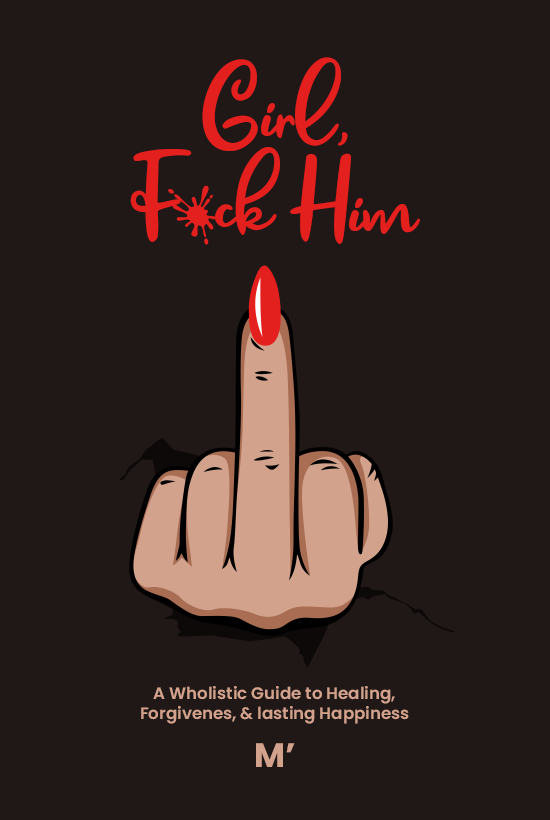
Picture this:
Life is a vast field of wild roses. You, a sojourner, are tasked with an assignment to get to the other side. To get to the other side, you need to get through the field.
You make your way through the field. Your back gets scratched by a thorn and it teaches you that thorns are sharp, so you learn to avoid them.
Your garment gets stained by the blood-red of some roses you encounter, and even though you learn to understand that those stains are not you, you learn how to handle your garment around bleeding roses if you want to keep it untouched.
At the end of the day, the scars, and the stains are not the essence of you innately. They are evidence of a journey you have undertaken. One that is ongoing and will still include more learning.
How do I stop hating myself for my Mistakes?
Someone said: mistakes don’t mean you are stupid or foolish. They simply mean you are human.
Mistakes don’t mean you are stupid or foolish. They simply mean you are human.
Anoymous
Hearing those words triggered a deep realization that felt like a weight had been lifted off my shoulders.
Fortunately, and unfortunately, mistakes are how we learn to navigate the world. Fortunately, because you get to have an array of experiences (yaay!), but unfortunately because let’s face it, mistakes suck.
Think about the way a baby learns how to walk; when they totter and stumble a hundred times, do you wince your nose and condescendingly proclaim: oh, what a clumsy baby! No. you applaud every tiny totter (oooh, I like the sound of that) because you know that we are humans and that is how we learn.
So how about we make that sound I like a declaration right now?
I encourage every tiny totter because that is how I learn.
Declaration
I’m celebrating you because you are on a journey to celebrate yourself
Here are 2 ways I deal with navigating mistakes:
1. Divorce the “your”
Paul Mckenna said “failure is an event, not an identity. People don’t fail; only plans and projections do.”
Divorcing your identity from the event makes coping with mistakes sooooo much easier. Whether it was a silly choice, an embarrassing incident, or a horrendous choice of a partner, removing your self identity from the event and accessing it solely as a situation presents you with an opportunity to not only be objective but also rid yourself of the shame and pain usually associated with a making a mistake. Notice how I stopped using the prefix “your” with mistakes a while back too? Exactly.
Failure is an event, not an identity
Paul Mckenna
2. Learn from mistakes
The choice to learn from the mistakes you make makes you a conscious participant in the process of your learning. When you become a conscious and intelligent participant in the process of your learning, you transform it into an enjoyable experience. Painful sometimes, yes, but still beautiful and ultimately satisfying. You get to witness the beauty of your growth instead of tearing yourself down for it.
How I learn from my Mistakes: a 6-step plan
I know what you’re thinking: 6 steps to learn from mistakes?!
Because I am a Virgo in 2 placements and I love to be meticulous, I took the liberty of condensing how I go through mistakes into 6 steps. They came with practice (and hell yeah, I still practice!) and these days, I find myself instinctively going through the steps whenever I make a mistake.
I went back to my journals and found a consistent thread. Today, I’m happy to share it with you.
- Become aware
Becoming aware means that you have cultivated an ability to step out of yourself and observe. If this is a pattern, observe what happens before that pattern kicks in. What stream of thoughts go through your mind? What sensations do you feel in your body? Observe and remain aware.
- Untether yourself
Remove your self-identity and personal bias from the situation to help you be able to examine it without feeling attacked or cultivating a need to be defensive.
- Examine
Look at the situation objectively and with no judgment. What happened? Why did it happen? How did you act/react? Why did you act/react that way? What stream of thoughts preceded that action? What beliefs about yourself and/or the world preceded that action?
- Notice threads
Are there patterns to be noticed here? Are those patterns underlined by certain belief systems? If so, what are those belief systems?
- Examine the deeper causes of those threads
Take a close look at the belief systems that cause you to keep repeating a mistake. For example, holding a belief that says “I have to work to make him love me” may be the reason why you keep sleeping with men that mean no good for you. Similarly, holding a belief that says “it is too much of a burden to love me” can be why you keep violating your boundaries.
- Consciously act
Now that you are aware, do something different. Act differently in those situations to break a pattern; evolve, or at least just stay aware through the process when it happens again. Stay aware and keep affirming your intention to outgrow this behavior.
Heres to your growth and to loving yourself through your humanity, mistakes and all.🥂
Liked this post? Well, theres more!
-
Sale!

Dinner Plates – Japanese Minimalism
$28.00$18.00 -
Sale!

Round Table Anti Slip Mats – Modern Home
$14.70$9.90 -

-

Indigo Blue Ceramic Vase
$101.00


5 Ways You are Ruining Your Relationships
In a recent study conducted on 120 men and women, the men answered yes to a degree of 9 points and beyond to the question: “Does economic power make you more attractive?” For the women, it was around 5 and 6 points on a scale of

The Real Reason Why You Will Marry the Wrong Person
Since people seldom marry for land, peace treaties, and things of that sort anymore, romantic love (or our idea of it) is the new order of the day. Romantic love is largely perceived as partner compatibility, and a large part of partner compatibility is based on

Your Ultimate Secret Weapon to Own the Room
One day, many years ago, I walked into a cosmetic vendor’s store. I may have come to get other things, but I remember that I was looking to get a new perfume in particular. I studied the shelves for a minute and picked up a curious-looking green bottle…
Follow
Error: No feed found.
Please go to the Instagram Feed settings page to create a feed.


